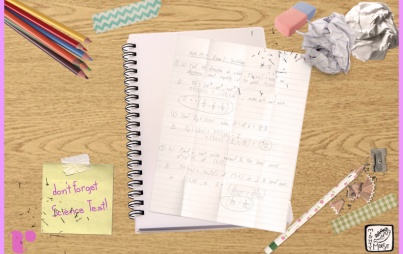
It happens to adults, too.
The psychiatrist suspected that she might have ADHD and tested her for the disorder, which took her aback; she (like me) had always envisioned people with ADHD as extremely hyperactive, which neither of us is.
I was the first kid in my kindergarten class to read, and I did so voraciously — I devoured books at a Superman-like speed, and my parents were thrilled with my desire to learn. I remember when my dad first told me he would never say no to my request for new literature — I took that offer as a challenge, a promise that I’d never run out of books. I read every morning and before bed each night. I read in the car, in the bath, and in my secret hiding place under my bed. I was unstoppable, and we were at the bookstore nearly every week.
This love of reading has never diminished — what has diminished, however, is my ability to concentrate. Early in my high school career, the As that had been so easy for me to attain slipped to Bs, and then to Cs. My whole family is in the education field, and I worried that I was disappointing them. No matter how hard I tried to concentrate, I simply couldn't focus. Each time I'd sit down to try to read, I'd find my eyes glazing over, scanning the same page for 10 minutes at a time with no comprehension. My parents noticed this change. They told me that I was smart and could do better, but my confidence was fading, and I became more frustrated with each failed assignment or attempt to concentrate. Eventually, I sunk into it; I started to believe that I was just lazy and stopped caring altogether.
This troubling phenomenon followed me to college. I found it impossible to sit through even hour-long lectures, and even more impossible to supplement those lectures with the assigned readings. As my confidence waned, I started to withdraw socially. I became panicked that I’d never be successful, that I’d never graduate and find a job and do good work. I started to become anxious each day on my drive to school, until one day I broke down in tears in the parking lot and turned around for home without going to class. This continued for a week; I wasted gallons of gas driving to school just to cry in my car. I knew something was wrong, but I didn't know what — however, I also knew that it was a waste of time and money to continue attending classes that were causing me such anxiety, so I decided to take a break from school while I figured it out.
Shortly after I applied to take a leave from school, I met with my friend Jessica* for coffee. She and I are very much alike — we have similar personalities and opinions, and engage with the world in a similar way. In passing, I mentioned that I was taking a break from my studies and it started a conversation that would change my life.
Jessica revealed to me that she'd had almost the same experience in the beginning of her college career, and that she'd voiced her desperation to a psychiatrist. The psychiatrist suspected that she might have ADHD and tested her for the disorder, which took her aback. She, like me, had always envisioned people with ADHD as extremely hyperactive, which we are not. However, she learned that ADHD has three main characteristics (inattention, impulsivity, and hyperactivity) and that not everyone exhibits all three types of behavior. This revelation sparked an interest in me, and when I got home that day, I did some research.
So many things I read about adult ADHD rang true for me. I get distracted easily and have trouble concentrating on dense materials and tedious tasks — that is, if they aren’t interesting to me. If they are, I become obsessive and can’t let go of the idea. I fidget a lot, and though I bite my tongue when it comes to interrupting others, I often interrupt my own thoughts with five tangents at a time. I get bored easily, and I've often been accused of not listening. I daydream often, and get lost in my own thoughts. After reading all the potential effects and symptoms of ADHD, I took a handful of assessment tests online. They all told me it was "highly likely" I had the disorder.
The next day, I scheduled an appointment with a psychiatrist to be properly diagnosed and discuss medication, if necessary. On the day of the appointment, I felt like a weight was lifting — she listened to all of my concerns and told me she believed I absolutely had ADHD (there's no one test to diagnose the disorder conclusively, but psychiatrists are skilled at assessing patients). I felt a wave of validation: I wasn't stupid or lazy, and the problems I'd been experiencing were not my fault.
We discussed possible courses of treatment, including organizational techniques, meditation, and exercise to strengthen my brain's ability to concentrate. We also talked about the addition of medication into my regimen. After starting with Ritalin (which increased concentration, but gave me a headache every time) we landed on a drug called Strattera to give me the boost I needed. There are many different kinds of drugs that can help ease the symptoms of ADHD, and I recommend researching options online as well as talking about them with a psychiatrist before making any decisions.
That appointment was two years ago. In the time that has passed, my life has transformed. I went back to school and obtained my degree in English, and I'm now at the beginning of my career as a writer and editor. I stopped taking medication about six months ago, because I found that the organizational skills and methods I learned while I was on Strattera strengthened my ability to concentrate enough. Some people need to stay on ADHD medication for life, and that's absolutely fine, too. Though my concentration still isn't at the level it was when I was a child, I'm grateful to experience a vast improvement to the days that caused me such bad anxiety early in my college career. I'm also grateful to have my favorite hobby back.
*name changed





